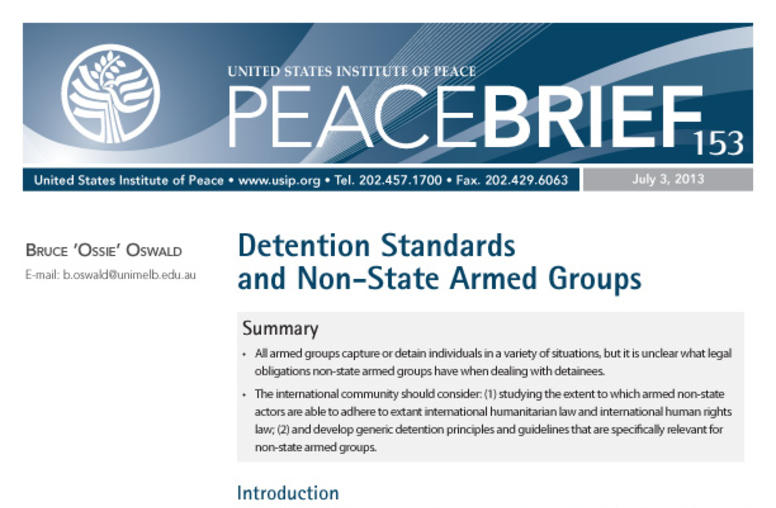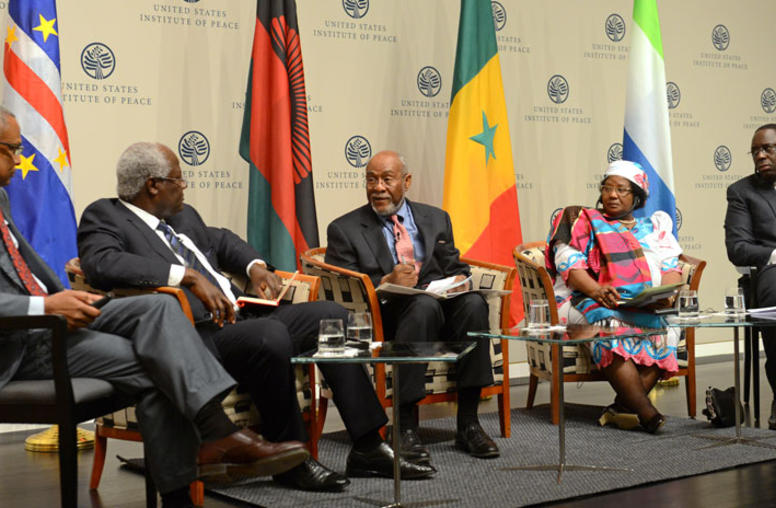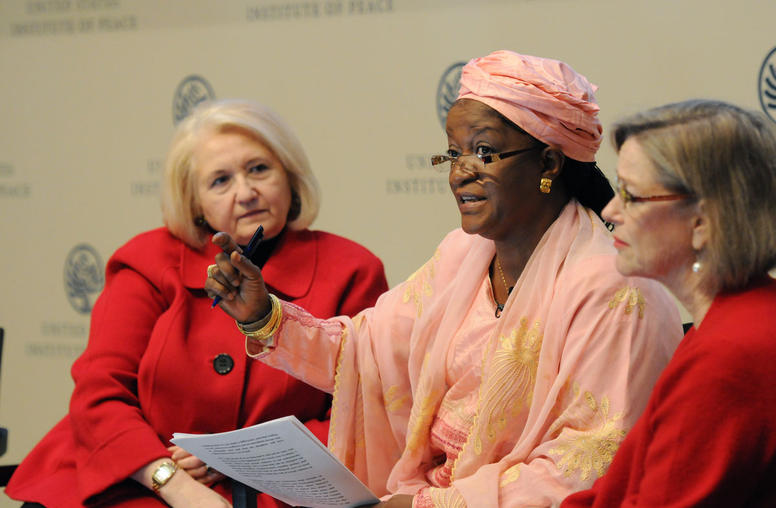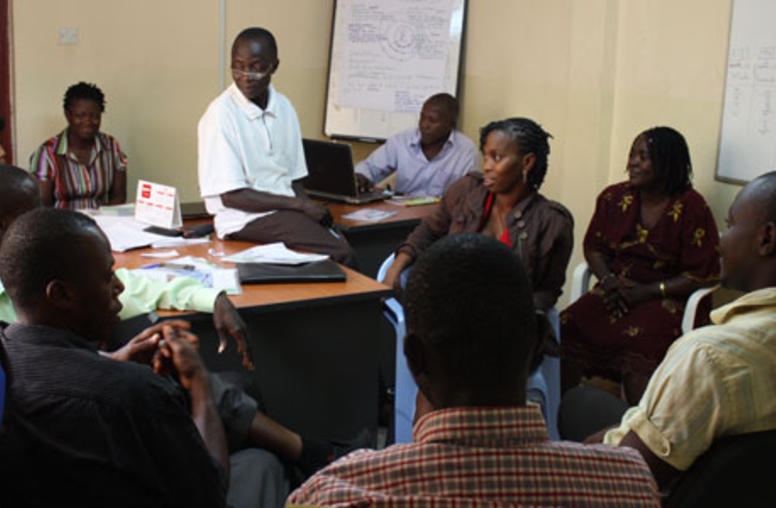USIP Board Member Emphasizes the Significance of Media in Peacebuilding Efforts
Media technology is changing the way peacework is done, and the United States Institute of Peace is leading the field, according to USIP Board of Directors vice chairman, George E. Moose.
Media technology is changing the way peacework is done, and the United States Institute of Peace is leading the field, according to USIP Board of Directors vice chairman, George E. Moose.
“There is an explosion of information out there,” Moose said. “The concerns with an increase in media are that you get more information but the information is less in-depth and some of it is not reliable. USIP people are increasingly quoted because USIP has become a reliable source.”
Media are a way to share information about international conflict, as well as educate the public about USIP’s work abroad through webcasts and other online initiatives. In addition, USIP’s Media, Conflict and Peacebuilding and Science, Technology and Peacebuilding Centers of Innovation focus on media and technology and their roles in conflicts and peacemaking.
“Providing access to information and being a provider of information is a core mission of the Institute,” Moose said. “The Institute was established to collect and disseminate information on the lessons to be learned from our experience in peacemaking and peacebuilding. And at the same time, media are also an instrument of peacemaking.”
Moose sees USIP’s role as one which must use media as a platform to act, teach, and train—as well as inform new perspectives on conflict. Moose said, “it is important that everything at USIP points back to its mission: to create discussions about peace.”
“Although I consider myself a foreign policy generalist, I have become more interested in the role of media in peacemaking—because it is such an impactful field,” Moose added.
Moose was a career member of the U.S. Foreign Service, where he attained the rank of career ambassador. His service with the U.S. State Department included assignments in Asia, Africa, the Caribbean and Europe and he also worked in New York with the United Nations, primarily on southwestern Africa issues. In June 2007, he was appointed by the White House to the board of directors of the U.S. Institute of Peace, where he now serves as the board’s vice chairman. He also serves on the boards of Search for Common Ground, the Atlantic Council and Elderhostel. Since 2003, Moose has been an adjunct professor of practice of international affairs at the Elliott School of International Affairs at The George Washington University.
As a board member, Moose has a role in oversight, as well as vetting and reviewing the grant proposals and the fellowships USIP awards each year. He said many grants and fellowships have recently been awarded to people doing work in the field of media, technology and peacebuilding.
“Everybody at USIP is very knowledgeable about the role of resources in conflict, and the role of resources in governance,” Moose said. “Media and technology are also resources. They are playing a role in many conflicts by breaking the chain of power and allowing people who have not been able to speak the chance to share their side of the story.”
Moose recalled his visit to Sierra Leone in 2004 to observe the work being done there by Search For Common Ground. Through Search For Common Ground’s work with local stations, radio became a way to spread information to the people, and even more importantly, give people a voice and a means of expression. In an environment where misinformation often reinforced suspicions and prejudices that could cause conflict, these radio programs became a source of facts and reassurance for people. Moose said that like radio did in the past, new technologies are now opening up new spaces and presenting new opportunities to provide “light and truth” to conflict situations, both international and internal.
“The work being done with television is especially exciting,” Moose added. “Programming, such as soap operas that deal directly with sources of social tension, can have a major impact across a whole society.”
USIP currently webcasts numerous public events and uses technology in peace dialogues both domestic and abroad. For example, Theo Dolan’s recent work on an Iraqi Youth reality TV program “Salam Shabab.” “Salam Shabab” incorporates film competitions as well as a social networking site that connects youth from all over Iraq.
USIP’s focus on public education is also important, Moose emphasized. He said although USIP’s new building on the National Mall will provide a visible location and platform from which to share information about the Institute’s peacebuilding work with the general public, and USIP’s web presence will also increase public knowledge of the work being done. In addition, he said the USIP 2011-2012 youth National Peace Essay Contest topic, “The Impact of New Media on Peacebuilding and Conflict Management,” will help youth think about the power and impact of media.
“The topic has instant recognition of the fact that media are increasingly important to peacebuilding,” Moose said. “Moreover, youth today are the media generation, and the essay contest will help them to think about these connections. It’s a natural connection.”
Moose said that as a publicly funded institution, USIP’s responsibility is to provide an understanding of the possibilities for peacebuilding, and share those with practitioners, as well as the general public. Media broaden the ability to reach more people and make information more accessible.
- Learn more about USIP’s Media, Conflict and Peacebuilding and Science, Technology and Peacebuilding Centers of Innovation
- Learn more about the National Peace Essay Contest.



